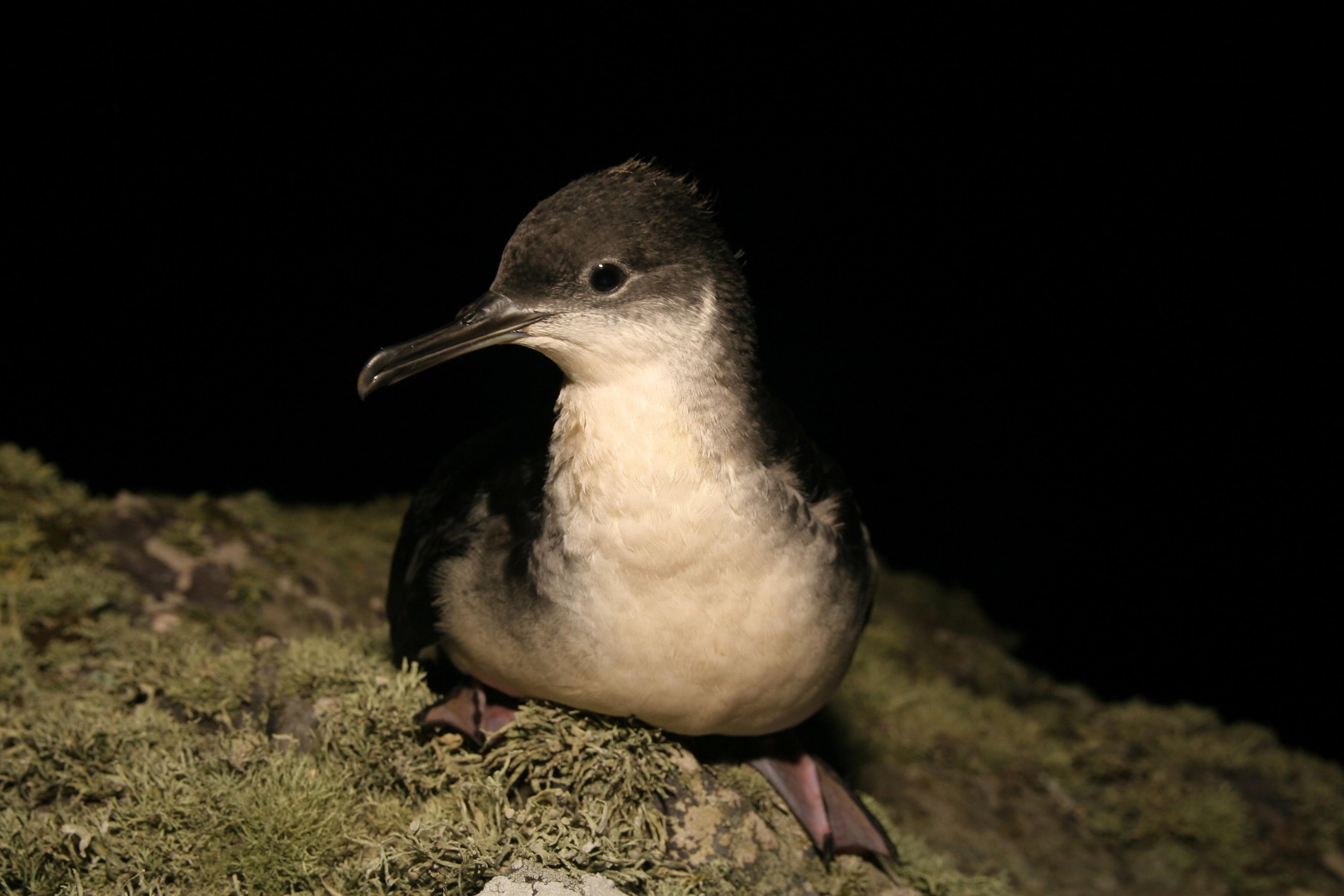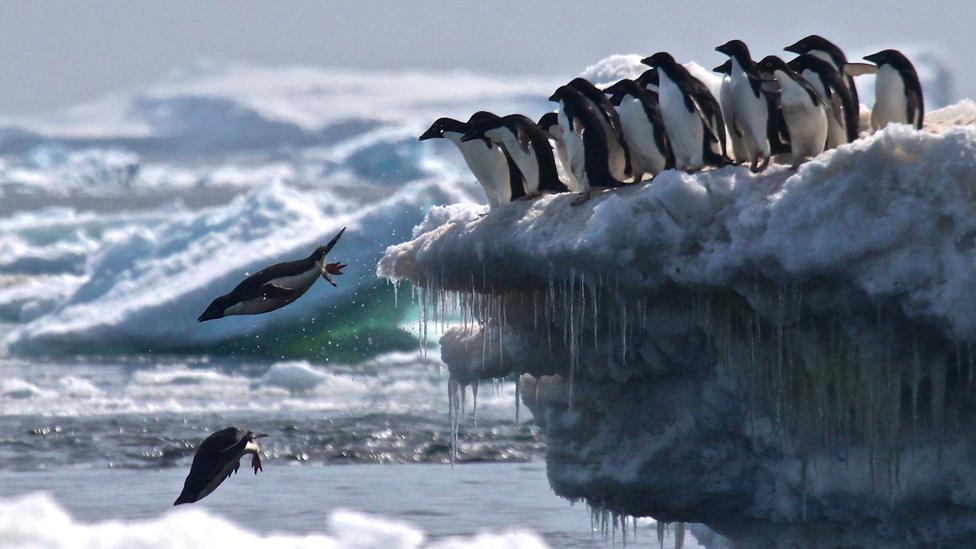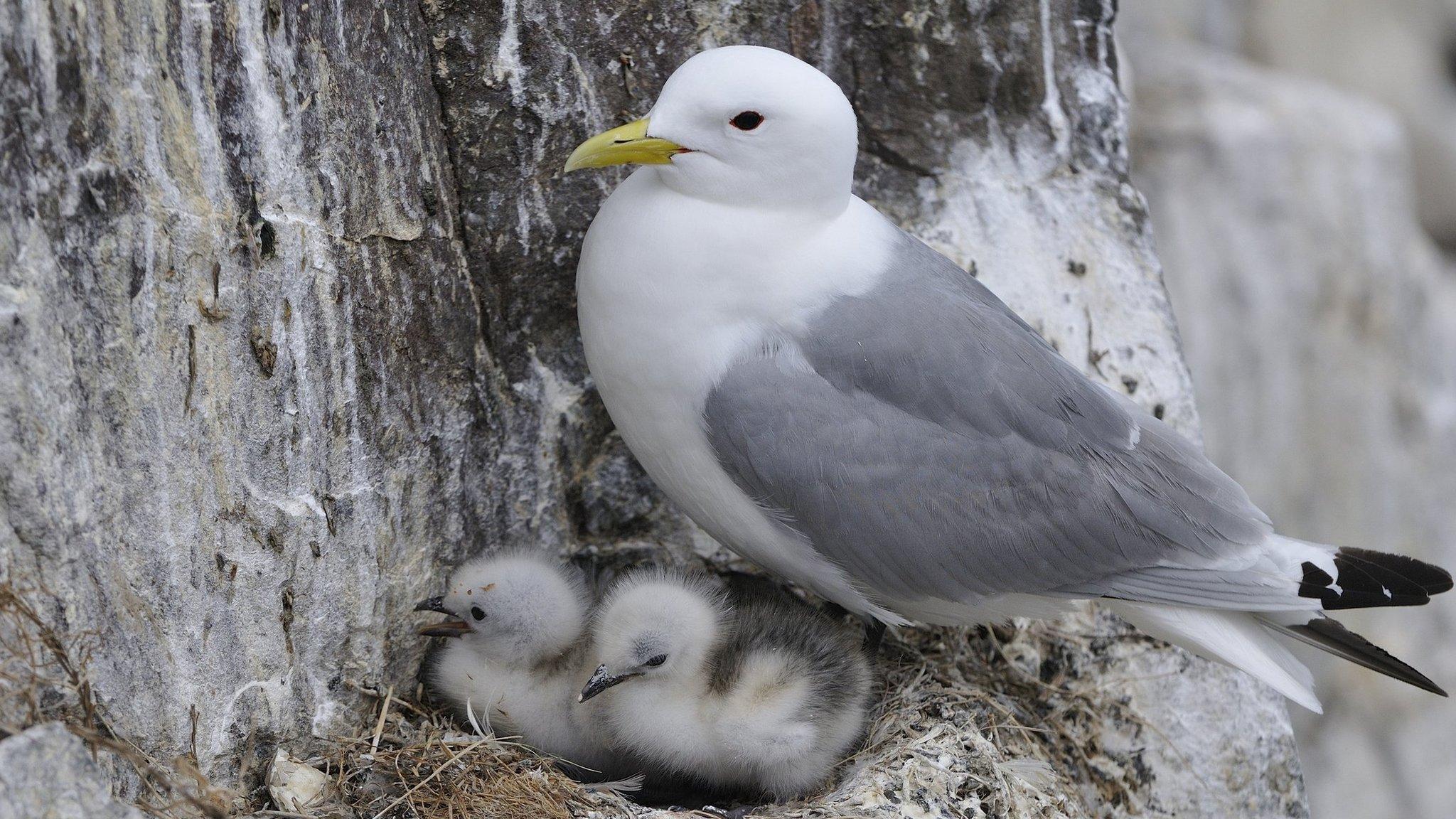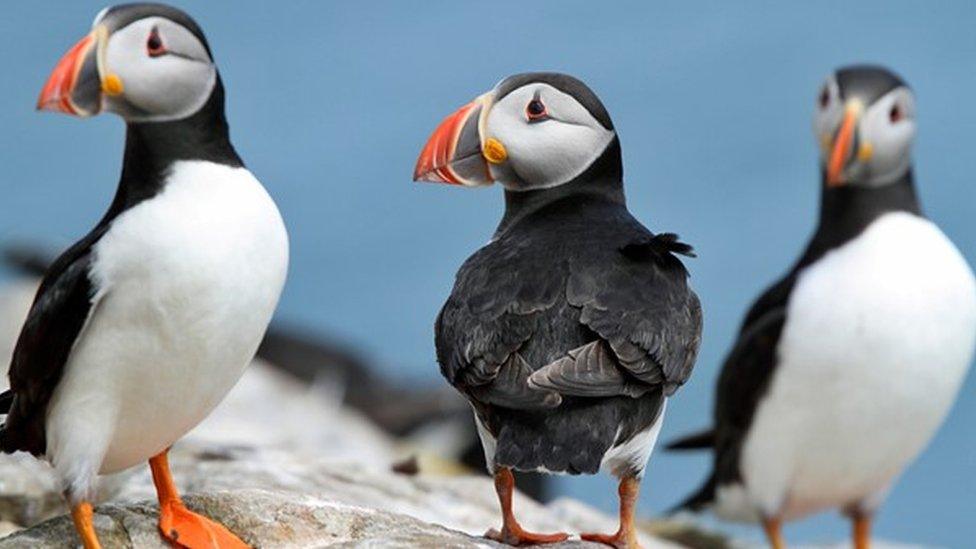Pembrokeshire 'daredevil' seabird population counted
- Published

The islands of Middleholm, Skomer and Skokholm are home to the world's largest Manx shearwater breeding colonies
Seabirds known for their daredevil flying stunts are being monitored for the first time in 20 years off the Pembrokeshire coast.
Manx shearwaters are being counted on Middleholm island by National Trust rangers and researchers from the Wildlife Trust of West and South Wales.
Pembrokeshire is home to the largest breeding colony in the world.
James Roden, National Trust area ranger for North Pembrokeshire, said the survey was "critical."
It is estimated that 50% of the global Manx shearwater population lives on Middleholm, Skomer and Skokholm islands.
The black and white birds are known for skilful flying and can dip so low their wingtips almost touch the water.
Mr Roden said: "Middleholm is much smaller than the adjacent islands, but it still supports a significant proportion of the UK's Manx shearwater population.
"For this year's census we played the male and female calls of the Manx shearwater down individual burrows on an audio device. If a bird responded to the call then we recorded the burrow as active.
"This technique is used as the birds are in their burrows during the daytime, and usually fly at night."
"With many seabird colonies around the UK in real trouble, it is critical that these surveys are carried out."
Mr Roden said that by carrying out the census "we will find that the Manx shearwater population is stable or has increased".
Due to lack of public access to Middleholm, Mr Roden and a team of five volunteer researchers have to rely on a cliff-side scramble, a small boat and good weather to count the birds.
The results of the survey are expected to be released in winter 2018.
- Published2 March 2018

- Published17 December 2017

- Published19 April 2018
